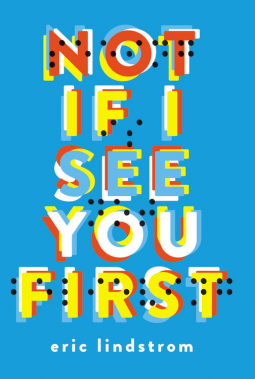 Eric Lindstrom’s debut novel, Not If I See You First, begins with a set of rules – rules that at first glance seem useful for building a relationship with a blind person.
Eric Lindstrom’s debut novel, Not If I See You First, begins with a set of rules – rules that at first glance seem useful for building a relationship with a blind person.
-
Number 4 – Don’t help me unless I ask. Otherwise, you’re getting in my way or bothering me.
-
Number 3 – Don’t touch my cane or any of my stuff. I need everything exactly where I left it.
-
Number 2 – Don’t touch me without asking or warning me.
-
Number 1 – Don’t deceive me. Ever. Especially about my blindness. Especially in public.
It’s this last rule that sets Parker Grant up to lose a relationship with Scott Kilpatrick, a friendship she needs after being orphaned.
Parker, fiercely independent, makes a life for herself that includes all the joy and angst of being a teenager with her blindness making potholes in her road, but not barriers that bring her journey to a standstill. She awards herself a gold star for every day she doesn’t cry after her father’s death, gives blunt advice to lovelorn classmates, and runs on legs that work much better than her eyes. At times, she finds it an advantage not to see how people react to what she says.
Relationships with her aunt’s family that move in with her, friends and classmates, and teachers aren’t that different from sighted people. Both Parker and her friends discover blind spots that have nothing to do with eyes.
What about the rules? I thought as I read that these rules would be helpful to anyone who wanted to have a genuine friendship with a person who happened to be blind. All the same, I was glad when Parker came to see that even the best of rules sometimes need to be bent. While this contemporary novel that I read in an advance reading copy from Net Galley is listed for young adults, it’s a good read for older adults, too. It goes on sale December 1.